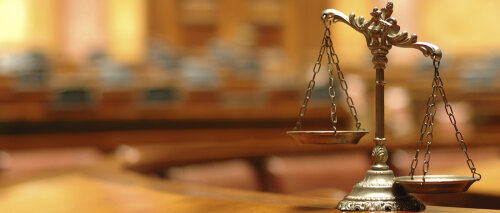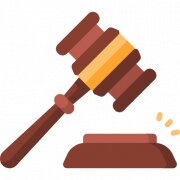Best Aviation Lawyers in Dominican Republic
Share your needs with us, get contacted by law firms.
Free. Takes 2 min.
Or refine your search by selecting a city:
List of the best lawyers in Dominican Republic
About Aviation Law in Dominican Republic
Aviation law in the Dominican Republic is a specialized field governed by both international and local regulations. The country's strategic location and growing tourism sector make aviation a vital industry. The legal framework includes agreements with international bodies like ICAO, as well as local regulations under the purview of the Dominican Institute of Civil Aviation (IDAC). These laws cover a broad spectrum, including safety standards, economic regulations, environmental concerns, and the rights and responsibilities of airlines and passengers.
Why You May Need a Lawyer
There are numerous situations where you may require legal assistance in the field of aviation. These can include disputes over airline contracts, addressing passenger rights violations, issues with freight and cargo services, aircraft leasing and financing, and compliance with safety regulations. Legal expertise might also be required for accident investigations and liability claims or navigating complex regulatory procedures involving aircraft registration and certification.
Local Laws Overview
The Dominican Republic's aviation laws are primarily concerned with safety, passenger rights, and environmental regulations. The Dominican Civil Aviation Board (JAC) and IDAC are the main regulatory authorities. Key aspects include strict compliance with ICAO standards, adherence to the Montreal Convention for passenger protection, and environmental laws limiting noise and emissions. Licensing and certification processes are rigorously enforced for pilots and aircraft, and there are specific regulations for drones and unmanned aerial vehicles.
Frequently Asked Questions
What is the role of IDAC in Dominican Republic aviation?
IDAC oversees all civil aviation activities, ensuring compliance with local and international standards while promoting safe and efficient air transportation.
How can I resolve a dispute with an airline over tickets?
Many disputes can be addressed with the help of a legal expert who can mediate and facilitate negotiations or take more formal legal actions if necessary.
What are my rights if my flight is delayed or canceled?
Under the Montreal Convention, passengers have rights to compensation in cases of delays or cancellations, and national laws also provide various consumer protections.
What steps should be taken following an aviation accident?
Immediately report the incident to relevant authorities and seek legal guidance to navigate the potentially complex aftermath, including investigations and liability claims.
Are there specific legal requirements for flying drones in the Dominican Republic?
Yes, there are regulations requiring registration, operator certification, and compliance with safety and privacy standards.
How are aviation taxes and fees handled in the Dominican Republic?
Aviation-related taxes and fees are generally managed by JAC, including airport usage fees, which must be adhered to by air service operators.
What international treaties affect aviation law in the Dominican Republic?
The Dominican Republic is a signatory to several international agreements, such as the ICAO Convention and the Montreal Convention, impacting many facets of aviation law.
How can one ensure compliance with environmental regulations?
Legal consultation can help ensure that all practices follow local and international environmental regulations, including emissions and noise standards.
How does the registration process for an aircraft work?
The registration involves meeting specific IDAC requirements, ensuring the aircraft complies with national and international safety standards.
What are the licensing requirements for pilots?
Pilots must meet stringent requirements, including extensive training and testing, with certifications issued by the appropriate aviation authority.
Additional Resources
For more information, you can contact the Dominican Institute of Civil Aviation (IDAC), the Civil Aviation Board (JAC), and explore resources from the Ministry of Tourism. Aviation organizations like the International Air Transport Association (IATA) can also provide relevant guidelines and information.
Next Steps
If you need legal assistance in aviation, consider consulting with a lawyer who specializes in aviation law. They can offer guidance on navigating regulatory compliance, resolving disputes, and representing your interests in any legal proceedings. Starting with a consultation will help you assess your situation and form a strategy moving forward.
Lawzana helps you find the best lawyers and law firms in Dominican Republic through a curated and pre-screened list of qualified legal professionals. Our platform offers rankings and detailed profiles of attorneys and law firms, allowing you to compare based on practice areas, including Aviation, experience, and client feedback.
Each profile includes a description of the firm's areas of practice, client reviews, team members and partners, year of establishment, spoken languages, office locations, contact information, social media presence, and any published articles or resources. Most firms on our platform speak English and are experienced in both local and international legal matters.
Get a quote from top-rated law firms in Dominican Republic — quickly, securely, and without unnecessary hassle.
Disclaimer:
The information provided on this page is for general informational purposes only and does not constitute legal advice. While we strive to ensure the accuracy and relevance of the content, legal information may change over time, and interpretations of the law can vary. You should always consult with a qualified legal professional for advice specific to your situation.
We disclaim all liability for actions taken or not taken based on the content of this page. If you believe any information is incorrect or outdated, please contact us, and we will review and update it where appropriate.
Browse aviation law firms by city in Dominican Republic
Refine your search by selecting a city.
















